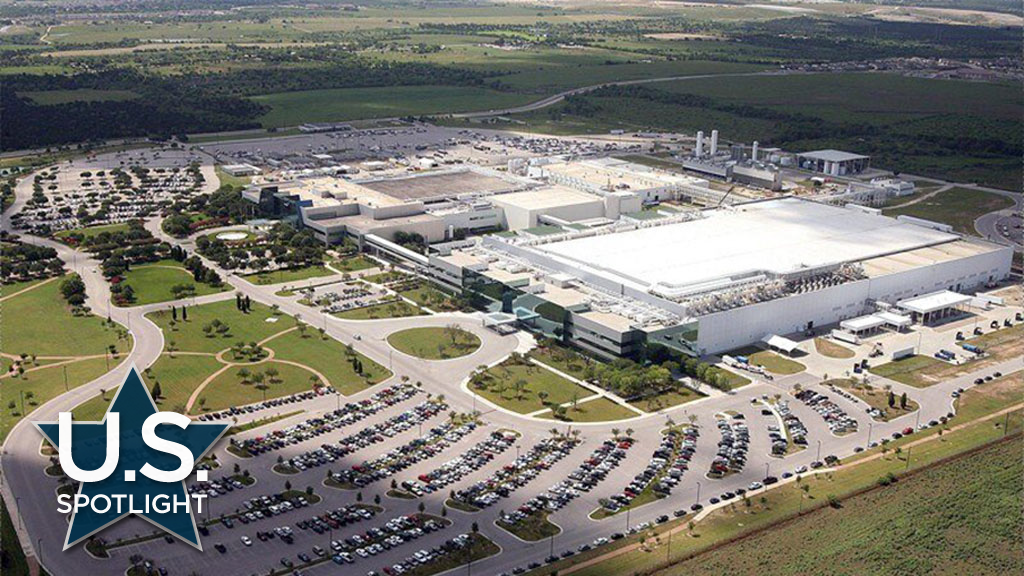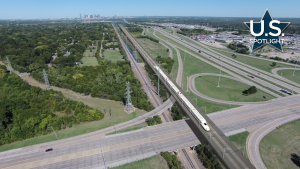A tax concession known as Chapter 313 that has been a boon for Texas construction for over 20 years is set to expire on Dec. 31. The net benefits in jobs and building activity derived to date have been immense. What remains unknown is what tax incentive, if any, will replace it.
Upon successful application to the relevant local school district, companies agreeing to build facilities and create jobs in Texas can save millions of dollars in taxes through a 10-year cap of their taxable property values. The valuation limit can be from $10 million to $100 million and apply to the taxes associated with the maintenance and operation of schools in the district. Chapter 313 has been a common thread running through the state’s successful track record for attracting manufacturing and technology investment.
Samsung, Tesla and Meta (formerly Facebook) are established and expanding. Many more tech companies are in the proposal stage, like NXP Semiconductors, Infineon Technologies, Applied Materials, plus global industrial gas company Linde and several renewable power producers. In fact, since its introduction, over 630 companies have been approved for tax concessions under Chapter 313, according to the Texas Comptroller of Public Accounts.
However, time is running out. With provisions allowed under Chapter 313 slated to end in December, there’s a rush of last-minute applications.
How important has Chapter 313 been to construction and investment in Texas? Samsung offers a good example.
In its June 2021 application to the Taylor Independent School District, Samsung suggested Texas was in competition with other U.S. sites for a new $17 billion manufacturing facility investment. Each alternate location “offered robust property tax abatement, as well as significant grants and/or refundable tax credits to fund the necessary infrastructure improvements.”
The company ultimately confirmed its investment in Taylor in November 2021 after being granted approval for Chapter 313 concessions. In late May, Samsung had nine new 313 applications accepted by the Taylor district and two in the Manor district, signalling potential future expansion.
ENGIE North America, a French-owned energy and utility company with plans to build its $300 million “Big Sampson” wind project north of Sheffield, Texas, was even more direct.
In its application to the Crockett County Consolidated Common School District Board, ENGIE wrote, “The property tax liability of a project without tax incentives in Texas would reduce the return to investors and financiers to an unacceptable level at today’s contracted power rates under a power purchase agreement…Without the 313 Value Limitation, the applicant would be forced to walk away from this project and spend the potential investment in other states where the rate of return is higher.”
Despite the attraction it has provided for major investments since its inception in 2001, Chapter 313 is not without opponents.
The social advocacy group Every Texan argues, “This colossal giveaway strains the rest of General Revenue services – higher education, health and human services, and public safety – to make up for foregone local school taxes.”
It says Chapter 313 will cost Texas $1.9 billion this year and up to $2.4 billion by 2025.
Supporters, however, say the school tax break is a small price to pay for the upside offered by new investment. Incoming corporations pay a range of other taxes for property and schools, sales taxes and motor vehicles taxes, to name a few.
Furthermore, companies drawn to Texas in part due to Chapter 313 have contributed hugely to the state’s building industry through the construction of their individual facilities. In turn, these investments have spurred the construction of new housing and retail-commercial infrastructure in their regions.
Ancillary benefits of the recent wave of big investment in Texas include announcements like those from Austin Community College (ACC). The post-secondary institution has created a bachelor degree program in manufacturing and engineering technology beginning this fall. The expected initial enrolment is between 40 and 50 students.
Outlining the objectives of the program, the college says the new bachelor degree “is designed to move working professionals in manufacturing into more advanced career roles and help fill growing workforce gaps in the industry.”
“Too often, we hear that companies in our community are forced to hire outside the local talent pool because there aren’t enough prepared and skilled workers here. We want to change that,” said Dr. Richard Rhodes, ACC chancellor. “This new bachelor’s degree gives us the opportunity to provide a more accessible and affordable pathway. It means more people in our community can advance their careers.”











Recent Comments
comments for this post are closed